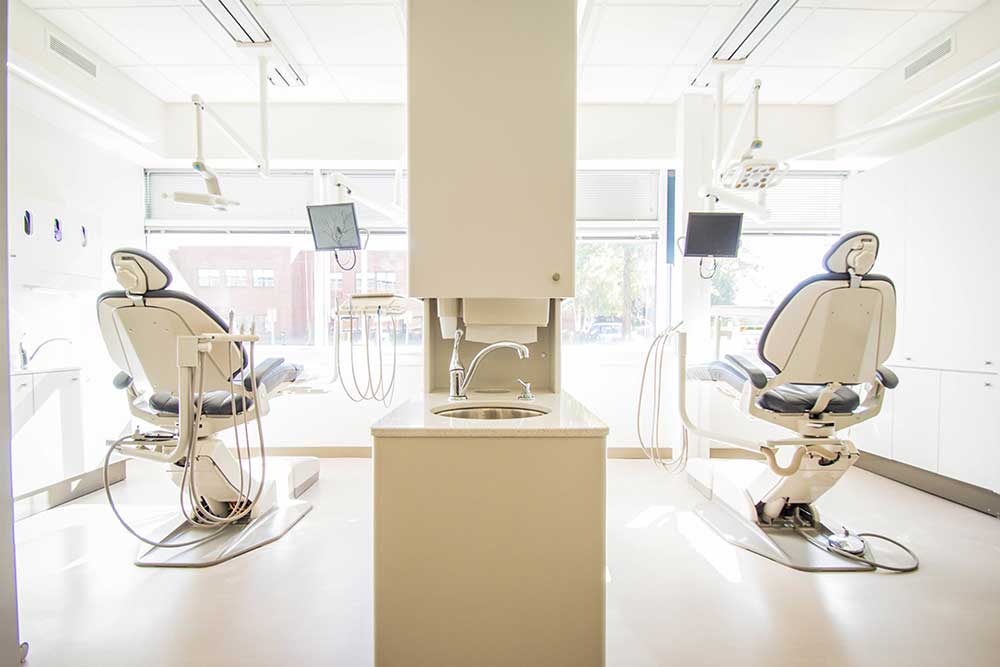Unlocking Dietary Secrets for All-on-4 Implant Success
All-On-4® dental implants, a revolutionary dental procedure, offer individuals a second chance at a confident smile. Following this transformative surgery, your implant dentist will provide you with aftercare instructions, but it’s crucial to pay special attention to your diet. Dr. Jay Stockdale, a trusted implant dentist from Renaissance Dental Care in Rancho Cucamonga, CA, will walk you through the dietary considerations essential for a smooth recovery and long-lasting oral health.

The Initial Recovery Phase

Immediate Post-Surgery Dietary Restrictions
During the first few days following the All-on-4 procedure, it’s essential to adhere to dietary recommendations:
- Soft Diet Recommendations: Opt for easily chewable and gentle foods. These may include mashed potatoes, well-cooked vegetables, yogurt, and pureed soups. These soft foods help minimize strain on the surgical site while providing essential nutrients for recovery.
- Avoiding Straws: It’s crucial to refrain from using straws after implant placement. The suction created when using a straw can disrupt the healing process and potentially lead to complications. Instead, sip beverages directly from a cup or glass.

Managing Pain and Discomfort Through Nutrition
Certain dietary choices can help alleviate pain and discomfort during the initial recovery phase:
- Anti-Inflammatory Food Choices: Incorporate foods with natural anti-inflammatory properties. This may include options like green tea, berries, fatty fish rich in omega-3 fatty acids, and turmeric. These choices can help reduce inflammation and promote faster healing.
- Foods to Avoid for Pain Relief: While focusing on anti-inflammatory options, it’s equally important to avoid foods that may exacerbate discomfort. For instance, spicy or overly hot foods can irritate the surgical site and lead to additional discomfort.
Transitioning to a Normal Diet

Signs of Readiness for a Regular Diet
Determining when to transition to a normal diet is a crucial step in the recovery process. This decision is typically based on your consultation with your implant dentist and the healing progress indicators, such as:
- Reduced Swelling: Swelling around the surgical site has significantly subsided.
- Minimal Discomfort: Any initial discomfort or pain has noticeably decreased.
- Stable Implants: The All-on-4 implants feel secure and stable in your mouth.
- Improved Oral Hygiene: You can comfortably maintain good oral hygiene practices without causing discomfort.
- Normal Speech Patterns: You’re able to speak without significant impediments or discomfort.
- Satisfactory Healing Progress: Your oral surgeon has confirmed that the surgical site is healing well.
- No Excessive Bleeding: There is no longer any persistent or excessive bleeding from the surgical site.
- Comfortable Chewing Motion: You can perform normal chewing motions without discomfort or strain.
- Clearance from Your Implant Dentist: Your implant dentist has assessed your progress and given the green light for transitioning to a regular diet.

Gradual Reintroduction of Solid Foods
As you move towards reintroducing solid foods, it’s best to proceed gradually to ensure comfort and avoid any unnecessary strain on the newly placed implants. Consider the following steps:
- Soft, Easy-to-Chew Options: Begin with foods that are easy to chew and gentle on your dental prosthetics. Examples include scrambled eggs, well-cooked vegetables, and soft fruits. These options provide necessary nutrients while allowing your jaw to adjust to regular chewing motions.
- Incorporating a Variety of Textures: Over time, gradually incorporate a wider range of textures. Progress to foods with slightly more resistance, such as tender meats, and gradually include a variety of fruits and vegetables with different textures. This helps strengthen your jaw muscles and adapt to a more diverse diet.
Nutritional Considerations for Optimal Healing
Essential Nutrients for Tissue Regeneration
Protein is your body’s building block for tissue repair. Include these sources in your diet for tissue repair and optimal oral health, including:
- Protein-Rich Foods for Tissue Repair: Protein is the cornerstone of tissue regeneration. Opt for lean meats like chicken, turkey, and fish. Plant-based options like lentils, beans, and tofu are excellent alternatives. Including protein-rich foods in your diet provides your body with the building blocks necessary for rapid healing.
- Vitamins and Minerals Crucial for Oral Health: Focus on obtaining essential vitamins and minerals that play a crucial role in oral health:
- Vitamin C: Found in citrus fruits, berries, and leafy greens, vitamin C aids in wound healing and collagen production.
- Calcium: Dairy products, leafy greens, and fortified plant-based milk are rich sources of calcium, which is vital for maintaining strong teeth and bones.
- Zinc: Nuts, seeds, and lean meats are excellent sources of zinc, an essential mineral for immune function and wound healing.


Foods to Avoid
- Hard, Crunchy, and Sticky Foods: Avoid foods that exert excessive pressure on your dental implants. Steer clear of hard candies, nuts, popcorn, and chewy candies. These can potentially lead to discomfort or even damage to the All-on-4 prosthetics.
- Foods That Can Irritate the Surgical Site: Spicy, acidic, or overly hot foods should be consumed with caution. They have the potential to irritate the surgical site and may lead to discomfort. Opt for milder options during the initial recovery phase.
Alcohol and Tobacco Restrictions
Both alcohol and tobacco can impede the healing process. They can impede blood flow and compromise the body’s ability to regenerate tissues. It’s advised to abstain from these substances to promote a smoother recovery. If you need assistance in quitting, seek guidance from your healthcare provider.

Long-term Dietary Adjustments
Establishing a sustainable and oral-friendly diet is key to maintaining the health and longevity of your All-on-4 implants. Long-term dietary adjustments not only support the integrity of your prosthetics but also contribute to overall oral health.

Adopting a Sustainable Oral-Friendly Diet
Prioritize a balanced diet rich in nutrients that benefit oral health. Incorporate a variety of fruits, vegetables, lean proteins, and whole grains. These foods provide essential vitamins and minerals crucial for maintaining strong teeth and gums.
Additionally, opt for snacks that are gentle on your All-on-4 dental implants. Nuts, seeds, and crunchy fruits and vegetables can be enjoyed in moderation. However, exercise caution to prevent any undue pressure on the All-on-4 prosthetics.

Monitoring and Adapting as Needed
Schedule regular follow-ups with Dr. Stockdale at Renaissance Dental Care. These visits allow for a thorough assessment of your oral health and any potential adjustments to your dietary recommendations.
Frequently Asked Questions
Are there any specific vitamins or supplements I should take to aid in the healing process?
Consult with your implant dentist or a healthcare provider for personalized recommendations. They can assess your specific needs and suggest any necessary supplements.
How long should I continue to follow dietary restrictions after All-on-4 surgery?
The duration of dietary restrictions can vary from person to person, depending on the individual’s healing progress. Follow your oral surgeon’s guidance and gradually reintroduce normal foods when deemed appropriate.
Is it normal to experience changes in taste or texture perception after All-on-4 surgery?
Some individuals may experience temporary changes in taste or texture perception, which is normal. These sensations typically subside as you adapt to your new dental prosthetics.
What should I do if I experience persistent discomfort or difficulty eating after transitioning to a normal diet?
If you encounter any persistent issues, contact your oral surgeon promptly. They can evaluate your condition and provide necessary adjustments or recommendations.
Ready to Embrace a Healthier Smile? Contact Us!
If you’re considering or have recently undergone All-on-4 surgery, taking the right steps towards recovery and long-term oral health is crucial. Contact our Rancho Cucamonga office at (909) 581-8205 to schedule your consultation with Dr. Stockdale.
You can also book your appointment with our convenient online form, and one of our friendly staff members will assist you. We’re proud to provide services to new and returning patients in Rancho Cucamonga and the surrounding areas like Riverside, San Bernardino, and Diamond Bar, CA.
